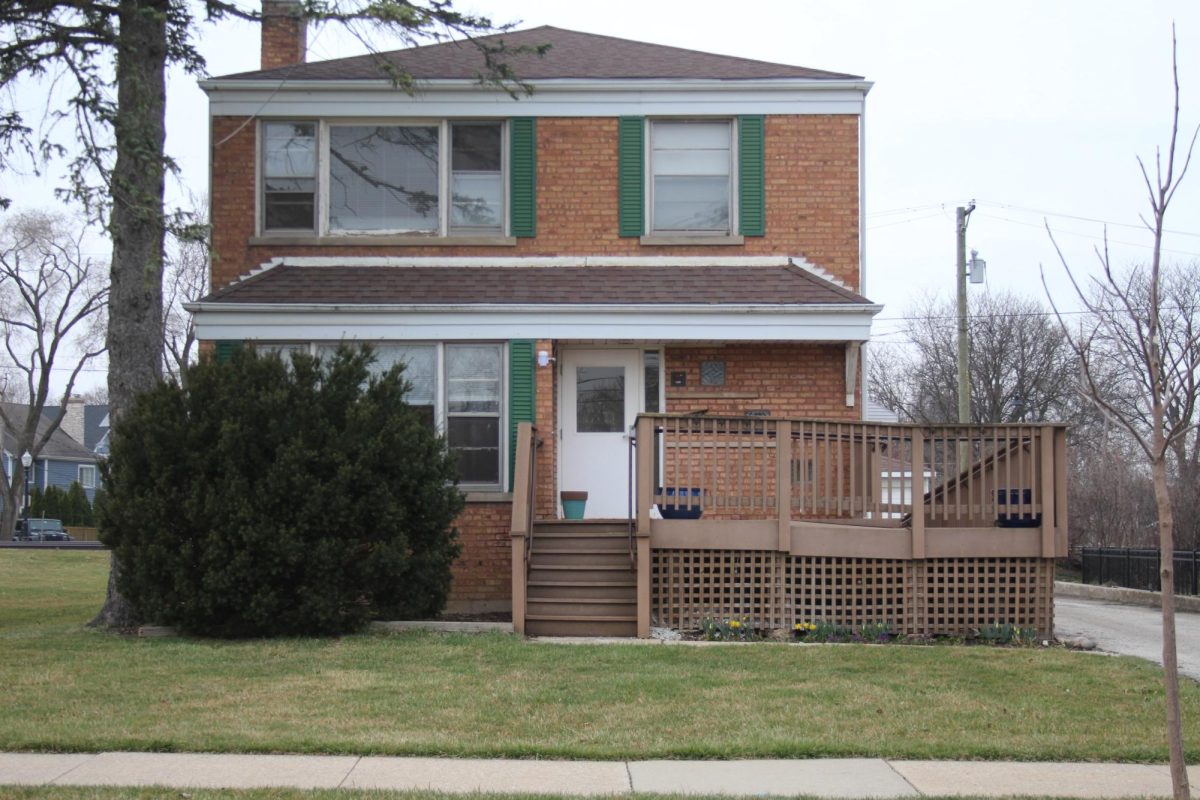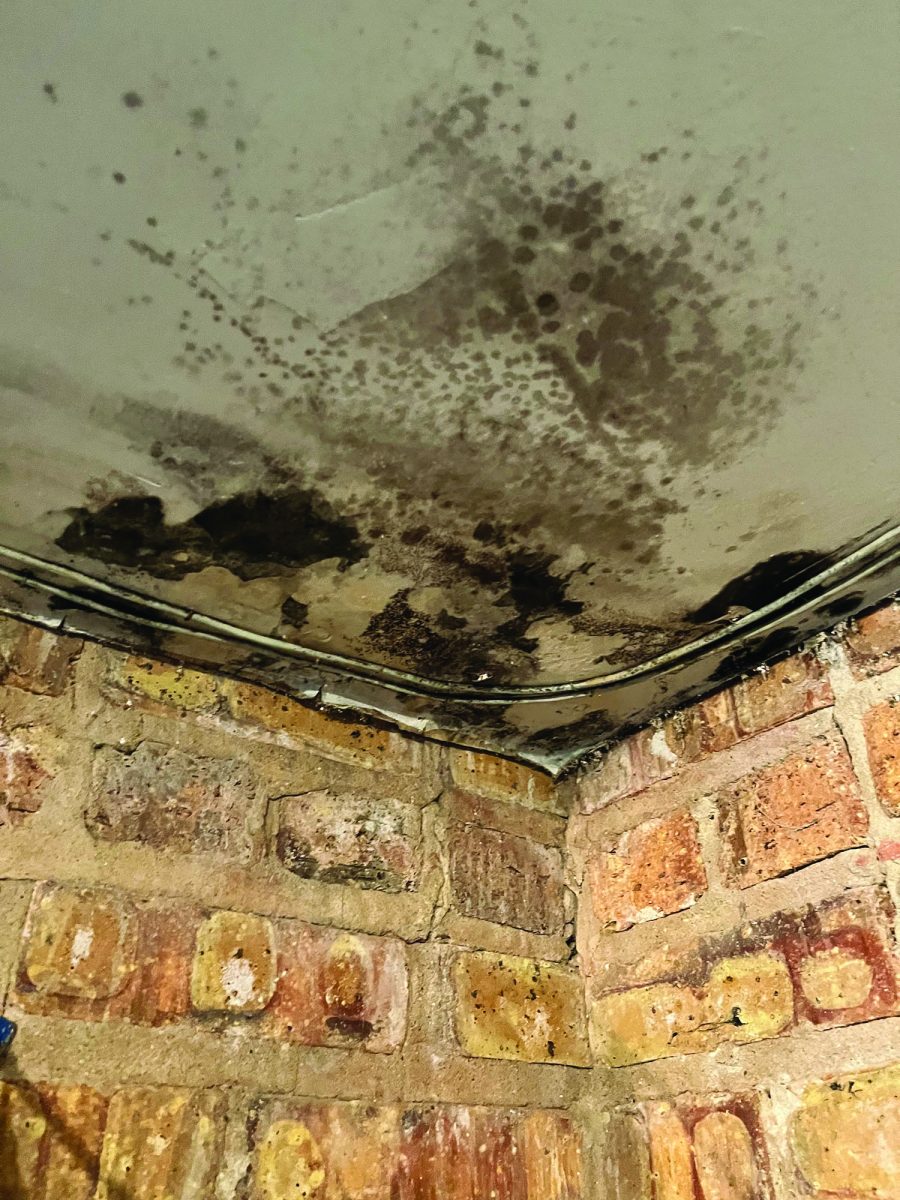Parents of Special Education Transition students recently voiced concern about the conditions of the Transition House, which is located at 1205 W. Cossitt Ave., in LaGrange. In December, the parents of students in the program were invited to an open house. Parents reported seeing mold, broken-up floor tiles, mouse droppings, filthy furniture, and more, a parent of a Transition student who wished to remain anonymous said.
On Jan. 23, a group of parents sent a letter to Superintendent Brian Waterman expressing their concerns.
The purpose of the Transition House, located near NC’s West Fields, is to help teach students independent living skills within a home environment, Special Education chair Melissa Moore said. Students practice doing laundry, cooking, gardening, and various other daily tasks. Students in the Transition facility can receive educational services until the end of the school year when they turn 22.
“The House was a gift to the Transition Program from a previous school board,” Moore said. “The purpose of the house is for students who are working on independent living skills and to be able to practice those skills within a home environment.”
Current Transition House conditions have made hands-on and adaptive learning difficult, the parent said. Many of the students in the house have physical disabilities, including the use of wheelchairs, walkers, and other aids. With floor tiles peeling up and mouse and roach traps within reach of all students, it makes what is supposed to be an adaptive learning environment challenging to be successful.
“[The maintenance of the Transition House] shouldn’t depend solely on the [students] working there; they need to learn those skills, but they learn by example,” the parent said. “[My child’s] health and safety are at risk, and if it’s not maintained, it’s unsafe for them to be there.”
After the Jan. 23 email was sent, Waterman responded the next day, and soon after, renovations began to take place.
“Since the beginning of the semester, many updates have been made within the Transition House,” Moore said. “These include the installation of new flooring, patching and painting of interior walls and trim, upgrading indoor and outdoor light fixtures, the installation of new kitchen cabinets and several new appliances, and repairs to the roof and gutters.”
When a transition student reentered the building on the week of Feb. 26, they noticed that the bathroom was still dirty, the parent said. Additionally, it is unclear to the families whether the mold has been cleaned up and removed.
“I want to know that [LT maintenance staff] visits [the Transition House] just as frequently as they do the halls of LT,” the parent said. “I understand that it’s not a part of the connected campus, but it should still be a part of the connected culture.”
Another issue that was brought to the attention of administrators is the ADA compliance of the building and how the house’s layout can present barriers to learning, the parent said. For example, there is not a bedroom on the first floor, and for a student who is learning to make a bed and has a wheelchair, that task would be unfeasible as there are no elevators in the building. Additionally, the kitchen is very small and has little counter space, and the refrigerator is in a different area, which makes it difficult for some people to move around safely.
“It makes it hard when you’re trying to make sure that your child gets the education and support services that they need according to their plan and you find a stumbling block,” the parent said. “At the same time, with the limitations of the facilities, they could have done a better job of maintaining this facility.”
Since the initial letters in January and then a follow-up on Feb. 1, as of the first week of March, there has been one other email sent to the parents updating them on the reopening of the house, the parent said. Families have requested another tour.
“We are so fortunate to have the Transition House, as it provides students an opportunity to practice and apply critical independent living, social, and vocational skills that are learned in the classroom within a home environment,” Waterman said.
The recent upgrades and reimagining of the space will allow LT to expand the use of the Transition House to further benefit all students in alignment with their post-secondary pursuits, Waterman said.
“The decisions that are made today will affect [the students] for the rest of their lives,” the parent said. “When the choices are made as to how we support and respond to their needs, it has a significant impact, and whether that is through inclusion, whether it is through maintaining facilities, whether it is through funding activities, it matters, and it matters significantly every day in their lives.”





















![Movie poster for '[Rec]" (2007).](https://www.lionnewspaper.com/wp-content/uploads/2023/04/rec-640x900.jpg)







Rory Quealy • Mar 21, 2024 at 7:03 pm
Great piece, important coverage.